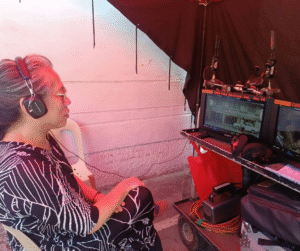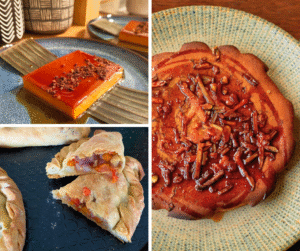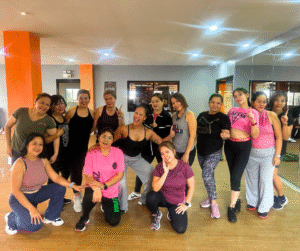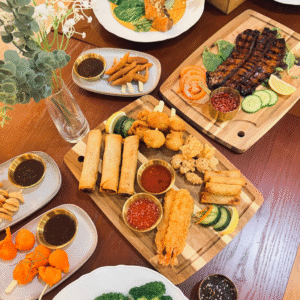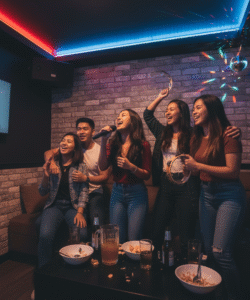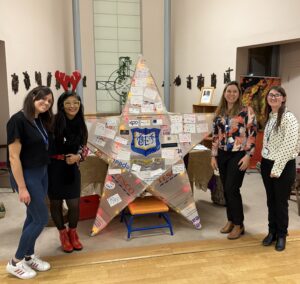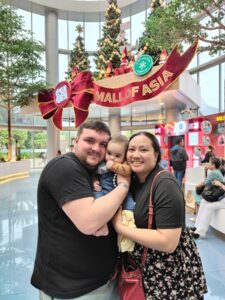By Gwen Montealto
Love is an enigma even to those who’ve experienced it, but it’s no question that it should be celebrated—even, supposedly, by aromantic people (or “aros”), who feel little to no romantic attraction.
I first discovered the term aromantic around 2016 via discussions on social media. Though I grasped at straws to identify as straight for normalcy’s sake, I was only straight in theory: sure, my favourite characters were male and I wasn’t into girls, but I still had no real interest in men. I was too absorbed in my passions — stories, music, learning — to care about dating. That suited me fine as a kid, but started to weigh on me as an adult.

Connecting with others is tough when we have little in common. To me, romance was uncomfortable for reasons I couldn’t properly verbalise, so as a teenager, I brushed it off as gross or sexist and moved on. Still, romantic and sexual relationships are a key point of connection — not just between people in love, but entire communities. Existing outside of that led to feelings of social isolation. Growing up, I was closest with my cousins and parents, yet I always felt like I was speaking to them from behind a barrier. My parents are happily married, yet I had no desire to be like them.
For a while, I just accepted that romantic connection (and even human connection as a whole) wasn’t for me. Anyway, singleness wasn’t an issue; it seemed like a peaceful way to live compared to feeling alien all the time… at least before I realised how financially difficult and isolating it can be — loved ones can’t be there for you once they have their own families.
Withdrawing into fantasies in order to fill that absence of connection, I fixated on fictional characters and conditioned myself to enjoy fictional romance. I often “shipped” characters together to explore different types of relationships. Through this, I realised the idea of the old married couple who act more like best friends than lovers seemed more fulfilling than traditional romance. My personal view of love was undeniably shaped by tales of family and friendship, works like Brother Bear, Lilo & Stitch, and The Velveteen Rabbit. Stories where friendship is treated as equal to (or better than) romance speak to me as Disney love stories do to hopeless romantics. Romance was candy, but the platonic and familial were homemade meals.

Unfortunately, it’s considered childish to value the platonic so deeply. My understanding of love didn’t translate well into adulthood. I envy non-aros with their countless resources on navigating connection, wishing that I had examples of aromantic love and happiness in the real world: works of art to speak to me, elders to guide me, an actual map to follow as an adult and not just the simplified ideas found in children’s media.
When I considered romance for myself as a young adult, my fantasies felt nearly incestuous: I’d have to remind myself I was lucky when an imagined boyfriend came on to me. I didn’t want my family’s pity and wished to relate to my romantically inclined peers. Still, in the end, flight-or-flight would kick in and I’d reject his advances…or at least try. I was a bad partner, choosing to be with him only due to pressure, and he resented me. I resented that committed relationships couldn’t be platonic.

Thankfully, I learned that there were people who shared my feelings through anecdotes told online. My anxieties reflected the lived experiences of aros who subjected themselves to trauma due to ignorance. It was like seeing a car crash where I’d just been standing. For the first time, though, I felt a spark of human connection. For all the difficulties, accepting aromanticism made me more at ease with myself, like learning where my heart was located in my body.
Finding a local community was life-changing. During the 2020 pandemic, I came across an ad on Facebook for the group Asexual Support Philippines (later renamed Aromantic and Asexual Support Philippines), who were hosting an online party on their community Discord server. Feeling more alone than ever, I decided to join.
People in the group shared my struggles, especially from the Filipino perspective. They spoke about the difficulties of single life, uncertainty over the future, wanting relationships outside the norm, and persisting stigma. We questioned the idea that romance should take precedence over other types of relationships. Aro heartbreak was something I had to reckon with as my family turned their ignorance against me (I came out as non-binary and was rejected), leaving me terrified of the future; this group was my island, safe from all that.
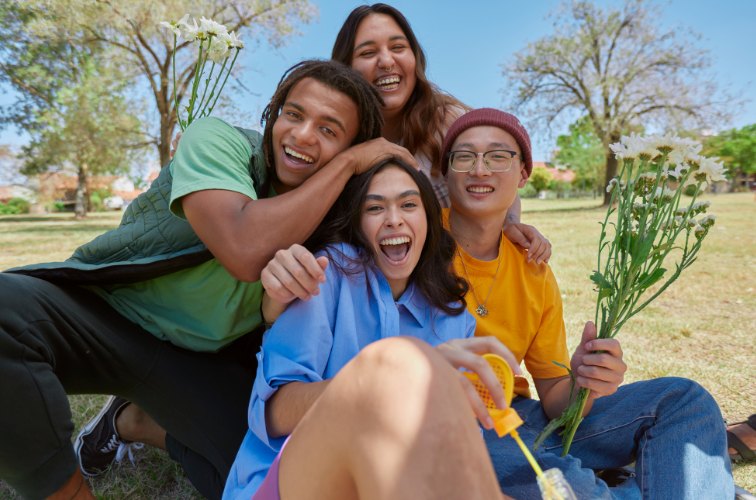
Above all, having a community made me feel like a real person. We’d chat about anything and everything; I made friends who didn’t make me feel alien, hosted D&D games and trivia night, and even hung out with people at AASP’s first-ever in-person meet-up. There are aros of all shades within the group: those like me, who are averse towards romance, as well as aros who aren’t asexual, aros who choose to embrace love in everything, and aros who reject love as a measure of value.
Much like gender is a varied and personal experience, so is love for aromantics; we all have something to offer, our own ways of expressing compassion, and we all tackle the question of belonging. Now, I feel slightly more equipped to start shaping a future for myself that would make me happy.
I’ve realised love isn’t a binary nor hierarchy, but whatever I make of it. To be aromantic is to unlearn and redefine everything I’ve been taught, building something new that embraces the humanity in everyone. At the end of the day, I genuinely like the aro community and experience, and I hope the world will someday celebrate our joy and alleviate our burdens, so we no longer feel like ghosts among the living.
About the author
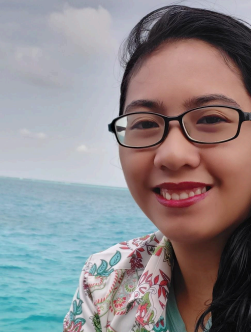
Gwen Montealto is a Filipino musician and a writer forever chasing the perfect draft, though occasionally they dabble in art as well. Currently based in the Maldives, Gwen grew up in many places, moving between Laguna, Manila, Mindanao, and countries abroad throughout their life. In their spare time, they enjoy a good study session as well as fantasy fiction and video games.


